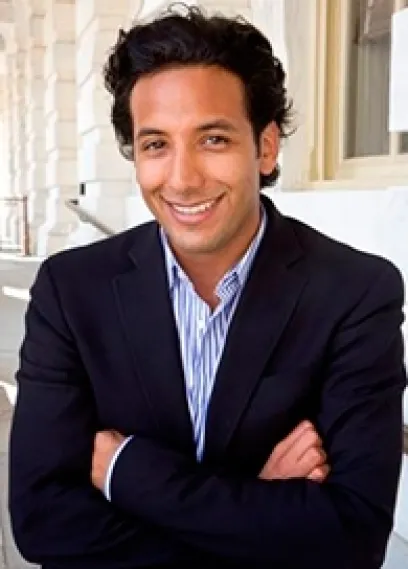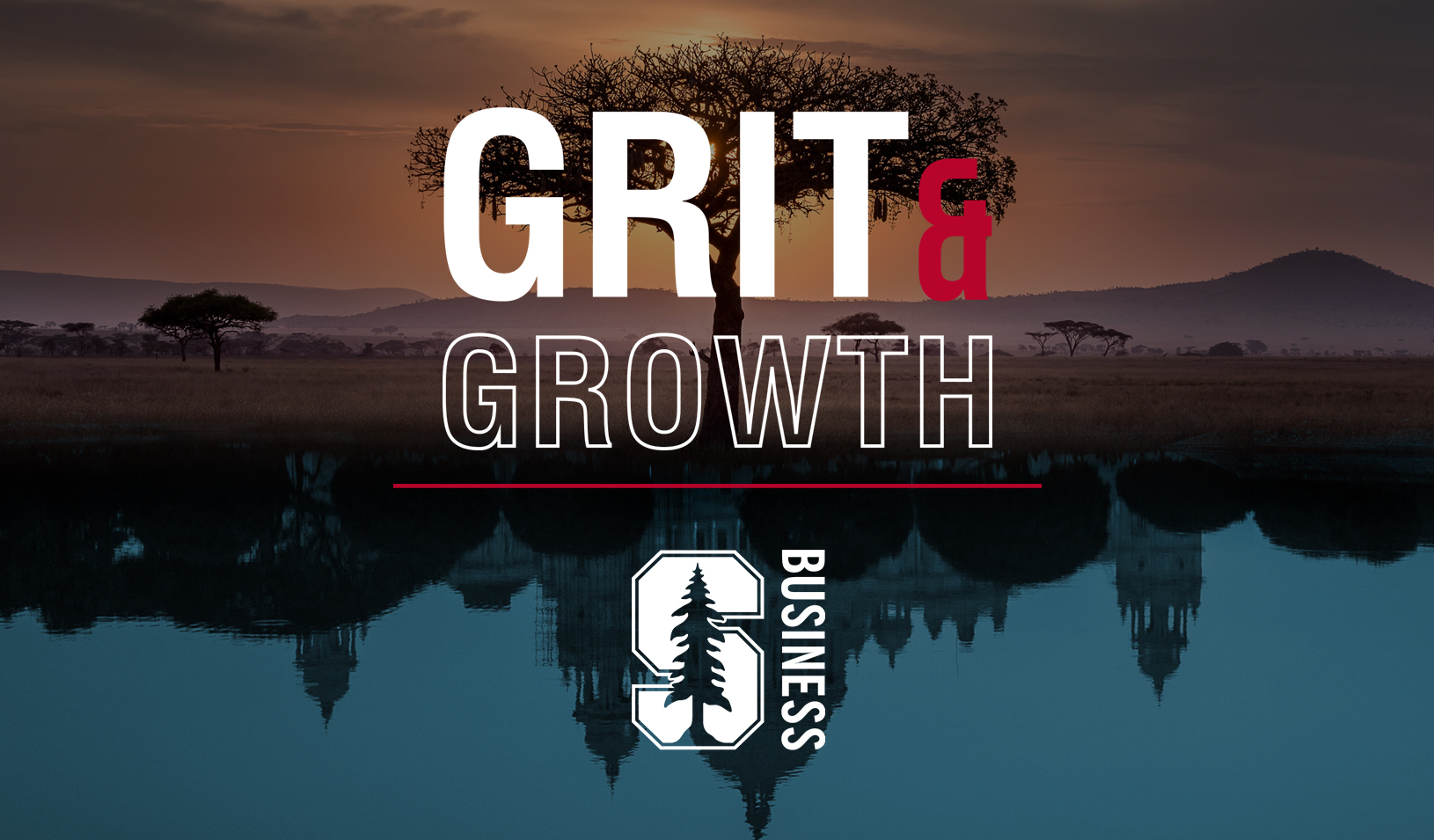September 20, 2012
| by Erika Brown Ekiel

James Gutierrez
James Gutierrez is an entrepreneur and investor. In 2005, Gutierrez founded Progreso Financiero to bring micro-lending to the U.S. Hispanic community and help thousands of families build credit and achieve their economic dreams. Since 2006, Progreso has made more than 250,000 loans through 83 locations in California and Texas. Gutierrez left Progreso in 2012 to pursue his next entrepreneurial venture.
As a former member of the Federal Reserve Board’s Consumer Advisory Council, Gutierrez helped draft new policies on expanding financial opportunities for lower-income communities such as Title XII in Dodd-Frank and SB 1146, which increases the availability of safe and affordable small-dollar loans in California. He serves on the boards of the Silicon Valley Leadership Group, the Association for Enterprise Opportunity, Sponsors for Educational Opportunity, and private companies Plumzi and FairLoan Financial.
What is the big idea behind your business?
Progreso Financiero empowers lower-income Hispanics in the U.S. who largely lack FICO scores by using innovative algorithms and high-touch retail settings to provide responsible credit and financial products.
What is the best advice you’ve ever received?
Be intellectually honest with yourself. Admit what you are not good at and hire people who can fill those gaps. I’ve heard this advice a number of times throughout my career, including from John Glynn, a professor at the GSB, and Len Baker, a venture capitalist at Sutter Hill Ventures.
What was the most difficult lesson you have learned on the job?
It is better to hire missionaries than mercenaries. You should always hire based on culture and fit first. If you find someone with a great skill set who is very accomplished but does not believe in the mission of your company, he or she will destroy your culture. You need to make sure you are always bringing on people who truly connect with, and are motivated by, the mission of your company and its culture. Once you hire a “mercenary,” they attract others like them who can destroy a company from the inside. It may happen gradually but you can see your company changing.
When I was still a young CEO I hired a senior operating executive thinking it would help to have a more seasoned executive at my side. I selected the wrong type of person. I placed a high value on the amazing operating experience this person had in running large organizations but I overlooked the fact that the person wasn’t truly motivated by our mission.
Choosing missionaries over mercenaries applies to directors, as well. Do not allow yourself to be awestruck by flashy, big-name people. When hiring a director, you should do the same intense work reference checking that you would with a senior hire. Ultimately, directors will have more power over the future of the company (and therefore, your future). Think about it: If you make a mistake on a hire, you can move that person out of the company. Once you bring on a director, he or she is there to stay.
What advice would you give other entrepreneurs on how to build a great business?
Build a winning culture. Define winning so that it has a sense of purpose. Great people are more compelled by a great purpose than by making money or being part of a new trend. If you can align a winning culture with a sense of purpose, you can attract the best people and build a place where people are proud to work and where they enjoy working with each other. There is no better feeling in the world than being at one of those companies trying to change the world.
What gets you up in the morning?
What always inspired me was helping the little guy. I don’t think America does a good job of distributing opportunity equally. I grew up in a largely Hispanic community in Southern California. That motivates me to get involved in disruptive organizations that can level the playing field to give opportunities to people who are deserving. The first loan I made was to a guy who used the funds to build a bakery. He brought in his whole family to sign the loan. When his first payment was due 15 days later, I started getting worried as the day wore on and he didn’t come into our store. He ran in just before closing with a huge box of bread from his bakery. He was so grateful for the loan that he wanted to share with us the dream we helped him create (along with two boxes of bread for me and my family). That is what inspires me. Making a difference in people’s lives and giving them hope that they can achieve their goals. Progreso is a very special place for that reason, and I hope I can create something like that again.
What is your greatest achievement?
My parents had a tough life growing up. My mother was born in Mexico and grew up in foster homes in East L.A. My father was Mexican-American and also very poor. They were a working, agricultural migrant family. My parents had to fight for a lot of basic things, and yet they managed to send us to great schools. My greatest achievement was showing them that I grew up to create something that has touched the lives of hundreds of thousands of people like them. Progreso has given 200,000 people from similar backgrounds the ticket to opportunity. It would be hard to match the pride in my parents’ eyes the first time they came to visit me at Progreso and saw firsthand the impact we were making.
What do you consider your biggest failure?
I built Progreso to a fairly large stage: a $50 million revenue run rate and 83 locations. Scaling the company to the next level was hard. I have learned a lot of lessons, like do not over-reach on valuation in a financing (always leave some money on the table), for example, that will help me as I build the next one, but I wish I could have been able to take Progreso all the way [in order] to be a public company CEO.
How do you come up with your best ideas?
I enjoy observing consumer behavior and culture. I like to envision what could be, and I ask myself: Why isn’t this better? How could it be better? I start to play out that scenario in my head. The best ideas come out of pain points I experience in my daily life and based on what I learned of gaps in financial services at Progreso. I am already working on my next company.
What values are important to you in business?
Transparency and an open culture. I believe you should share what many consider to be secrets about how the company is really doing, including the financials, to everyone at the company, all the way down to the call center. There should be no hoarding information. I also believe it is important to support experimentation. Everyone at the company should be encouraged to do fast experiments that fail quickly. Based on those tests the best ideas should win. Also, your values as a company have to be rooted in living a purposeful life.
What impact would you like to have on the world?
I want to make the world a better place. I want to help the little guy. I want to help distribute opportunity to people who don’t have access to it. In my time at Progreso I was fortunate to get involved in a lot of policy work, including developing banking and financial services regulatory reforms. I was in D.C. and Sacramento a lot. We passed two laws I led. I want to be an entrepreneur who empowers others through the businesses I create, and I would like to represent my community in the public policy arena. I believe the U.S. is becoming too insular. We need to embrace our diversity and recognize that we are evolving. We need to be more innovative in our approach to how we deal with the rest of the world.
What was your first paying job?
It was the summer before college and I worked at Kaplan, the test prep company, in charge of SAT sales. I cold-called lists of people and sold them $1,200 courses. It was the best experience for me. Part of being an entrepreneur is being a salesperson. The job at Kaplan taught me how to create a story around what I was selling so that what I was selling had meaning. At a certain point I realized I was not selling test prep but a dream. The dream was for the parents — for their kids to go to college and have an opportunity, for the parents to feel the pride of seeing their children becoming successful. I showed them that Kaplan could deliver on the promise of their children. I connected with them on the aspirational aspect of what their sons and daughters could be.
What is the best business book you have read?
I recently read Steve Jobs’ biography. I read it a month before I moved on from Progreso so it was really cathartic for me. I was inspired by his passion for creating great products and how he was able to recreate himself, learn from some of his mistakes and make some changes. Also, I was inspired by the fact that he recognized some things were just who he was — they were what made him great, and he didn’t want to give up on those things or forget who he was. He rebuilt himself and continued to have a vision for great products at Pixar and Apple. He was able to take the good and the bad and keep riding. He picked himself up and realized there were some things that made him great and some things that stifled him. It is important to just be aware of those things, even if you don’t change anything.
For media inquiries, visit the Newsroom.






